简体中文
繁體中文
English
Pусский
日本語
ภาษาไทย
Tiếng Việt
Bahasa Indonesia
Español
हिन्दी
Filippiiniläinen
Français
Deutsch
Português
Türkçe
한국어
العربية
Closed Position in Trading
Abstract:A closed position is a trade that is no longer active as closing a position involves nullifying the initial position. It eliminates exposure to market risk. Closed position is commonly referred to as “position squaring” in Forex trading.
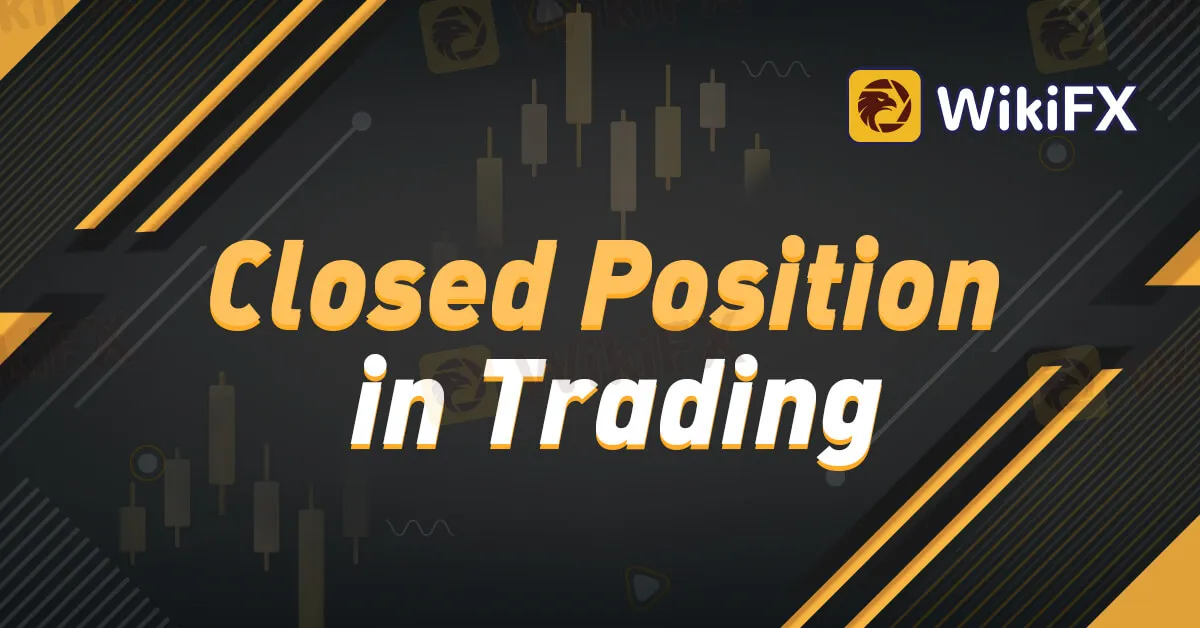
About Closed position
Closed positions are trades that have been ended by the trader, either by buying or selling. When closing a position, you trade in the opposite direction from when you opened it. Having a trading plan can help you close a position at the right price. It is no longer active. It is possible to close positions to increase profits or curb losses, reduce market risk, or generate cash. Closed positions are trades that have been ended by a trader, whether by buying or selling. As a result, you sell the investment or terminate it.
The opposite of an open position is a closed position. An open position is the exact opposite of a closed position, meaning you have completed a transaction involving securities.
Stock X is purchased, indicating that the position has been opened. Some stocks may be sold, added, or held. The position is still open. Upon selling Stock X, the position is closed.
How Does Closed Position Work?
A position can be closed or opened either manually or automatically.
For example, features like “take profit orders” and stop-loss will automatically close your position if a market‘s price rises or drops to a set level. This can be triggered when there is insufficient equity in your account to support the trade’s margin requirements.
When should I close a position?
when traders want to take profits or curb losses, reduce exposure, or generate cash., the positions can be closed.
Generally, traders close positions when:
profit targets have been achieved and the trade concludes with a profit
stops levels are reached and the trade concludes with a loss
trade needs to be concluded to fulfill margin expectations
Sometimes, an investor who intends to nullify tax liability on capital gains may close their position on a losing security to realize a loss.
Generally, closing positions are executed at the discretion of traders. However, in special cases, positions are sometimes closed by force or involuntarily.
For example, a brokerage firm may close out a long position held in a margin account if there is a steep decline in the stock, and the account holder (trader or investor) is unable to support the margin requirement.
To close a position at the correct level, it is important to set trading goals before entering a trade or opening a position. Goals could be target prices, expected return percentages, or anticipated loss. A position can be closed once these expectations are fulfilled.
What happens when I close a position?
When you close a position, the investment comes to an end. All profits and losses are realized and the trade is no longer active.
Open Position vs Closed Position
An open position is an initial position, long or short, that an investor takes on a trade. A position is open when the trade is live.
For example, a trader owning $1000 shares of a particular stock is said to have an open position. This is because the trade is live and can still make profits or incur losses.
On the other hand, a closed position is a trade that is no longer active and has been terminated by a trader. It is the exact opposite of the open position.
For example, a trader selling all the shares of a stock after it reaches the desired price target is said to have a closed position.
Conclusion
A closed position is a trade that has been ended by either buying or selling, canceling a previously open position to have no commitment. It is an important tool that traders and investors use to achieve profit targets and curb loss of security. Therefore, it is important to close a position at a level that satisfies margin requirements.
You can check the closed position in the analog trading system on WikiFX App. This feature can simulate the real forex trading scenario and help you learn and familiar with the basic rules of forex trading so that you can achieve a good result for real forex trading in the future. For more information, please check the article below.
https://www.wikifx.com/en/newsdetail/202210109734410105.html


Disclaimer:
The views in this article only represent the author's personal views, and do not constitute investment advice on this platform. This platform does not guarantee the accuracy, completeness and timeliness of the information in the article, and will not be liable for any loss caused by the use of or reliance on the information in the article.
Read more
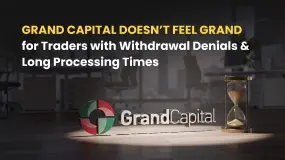
Grand Capital Doesn’t Feel GRAND for Traders with Withdrawal Denials & Long Processing Times
The trading environment does not seem that rosy for traders at Grand Capital, a Seychelles-based forex broker. Traders’ requests for withdrawals are alleged to be in the review process for months, making them frustrated and helpless. Despite meeting the guidelines, traders find it hard to withdraw funds, as suggested by their complaints online. What’s also troubling traders are long processing times concerning Grand Capital withdrawals. In this Grand Capital review segment, we have shared some complaints for you to look at. Read on!
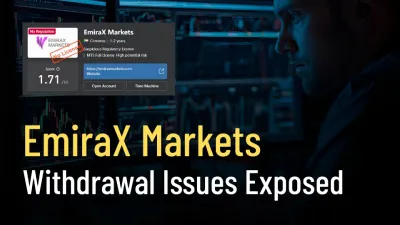
EmiraX Markets Withdrawal Issues Exposed
EmiraX Markets Review reveals unregulated status, fake license claims, and withdrawal issues. Stay safe and avoid this broker.
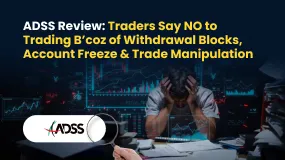
ADSS Review: Traders Say NO to Trading B’coz of Withdrawal Blocks, Account Freeze & Trade Issues
Does ADSS give you plenty of excuses to deny you access to withdrawals? Is your withdrawal request pending for months or years? Do you witness account freezes from the United Arab Emirates-based forex broker? Do you struggle to open and close your forex positions on the ADSS app? Does the customer support service fail to respond to your trading queries? All these issues have become a rage online. In this ADSS Broker review article, we have highlighted actual trader wordings on these issues. Keep reading!
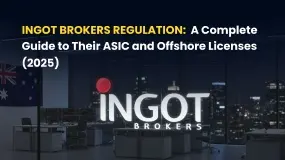
INGOT Brokers Regulation 2025: ASIC vs Offshore License - What Traders Must Know
Explore INGOT Brokers regulation in 2025: Compare their ASIC and Seychelles FSA licenses, understand trader protection levels, and learn about potential risks in this detailed guide.
WikiFX Broker
Latest News
Consob Targets Political Deepfake “Clone Sites” and Unlicensed Platforms in Latest Enforcement Round
WikiEXPO Global Expert Interviews: Gustavo Antonio Montero: ESG in Finance
Mitrade Arabic Platform Targets MENA Gold Trading Boom
Israeli Arrested in Rome Over €50M Forex Scam
Scam Alert: GINKGO-my.com is Draining Millions from Malaysians!
New FCA Consumer Alert 2025: Important Warning for All Consumers
EmiraX Markets Withdrawal Issues Exposed
INGOT Brokers Regulation 2025: ASIC vs Offshore License - What Traders Must Know
Is Upforex Safe or a Scam? A 2025 Safety Review Based on Facts
Polymarket Onboards First US Users Since 2022 Shutdown: Beta Relaunch Signals Major Comeback
Currency Calculator



